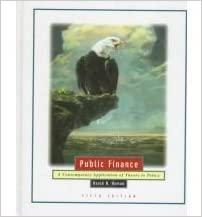Answered step by step
Verified Expert Solution
Question
1 Approved Answer
An initial investment of about NZD 7 0 0 , 0 0 0 was needed, which included registration fees and the start - up costs
An initial investment of about NZD was needed, which included registration fees and the startup costs for the center, excluding property costs but encompassing setup for classrooms, furniture, educational materials, and other related expenses. see Exhibit Prospective franchisees were required to secure a facility spanning square feet in a desirable residential area, with several rooms preferably on the ground floor. Franchisees could set tuition fees up to NZD annually per child, see Exhibit with flexible payment options. Despite the franchise agreement's flexibility on fee discounts, Robinson advised maintaining the set fees, confident in the franchise's profitability from the start. He provided potential franchisees with tentative profit projections for the next five years. see Exhibit As a marketing expert, Greenwood conducted a market survey in Christchurch, confirming a sufficient potential customer base to start the early childhood center with at least children in the first year, and projected increases in the following years. He estimated that this number could be increased by at least children in the second year and in the third year. Calculations were built on the assumption that, as some participants completed their first year and lei, new participants would join the program in the second year and beyond. To simplify his financial projections, he decided to assume that, starting from the second year, there would be an equal number of new participants and those who had been in the program for a whileeach group accounting for percent of the total enrollment.
New participants had to pay an extra NZD for their admission and registration, a fee that was not obligatory for existing participants. In the fourth and fifth years, Greenwood anticipated that the number of participants would stay consistent. Despite the promising outlook presented by Bright Beginnings, Greenwood opted for a conservative approach, accounting for various challenges he might encounter. He decided to seek funding through loans rather than personal assets, estimating an interest rate of per annum and factoring in that the school's revenue would place him in a tax bracket under New Zealand's tax laws. ; Determine the Weighted Average Cost of Capital WACC for the project utilized in assessing its cash profitability.
In your role as a financial consultant, do you believe the project possesses financial viability? SubstanFate your response by compuFng the net present value NPV
Evaluate the project using alternaFve capital budgeFng methods like payback period, internal rate of return IRR and profitability index PI Provide a conclusive recommendaFon regarding the investment decision.
If the franchisee opts to provide a discount by waiving the firstyear admission and registraFon fees to aNract new customers, what impact will it have on profitability and NPV Elaborate on your numerical findings with a thorough analysis. Do you endorse implemenFng this strategy?
Look closely at the consultant's careful analysis of the franchise project. Consider how the consultant's approach to fees and cauFous predicFons might affect how much money the project makes. Talk about the important factors like NPV keeping fees steady, and why the consultant thinks the project is doable. Share your thoughts on whether you agree with how the consultant sees the project's profitability. EXHIBIT : FRANCHISEE COSTS Category
Fee NZD Affiliation fee
Setup cost
Other capital investments Training fee
NZDTotal ; Exhibit : Suggested Application Fee Structure Category
Fee NZD
NZD
Form and registration fees mission fees
Caution money
Total onetime fees Annual fees
Kit charges
Activity charges
Annual charges
Tuition fees
Total annual fees
Total fees; Exhibit : Expected Annual Profitability Projection years Year year year year year
Step by Step Solution
There are 3 Steps involved in it
Step: 1

Get Instant Access to Expert-Tailored Solutions
See step-by-step solutions with expert insights and AI powered tools for academic success
Step: 2

Step: 3

Ace Your Homework with AI
Get the answers you need in no time with our AI-driven, step-by-step assistance
Get Started


